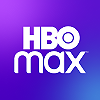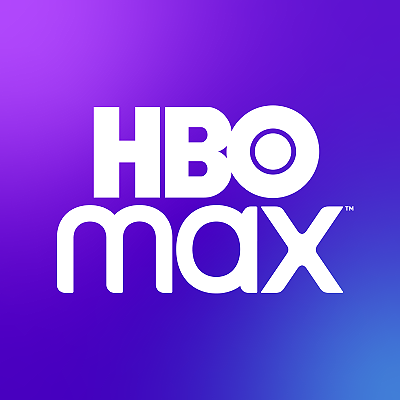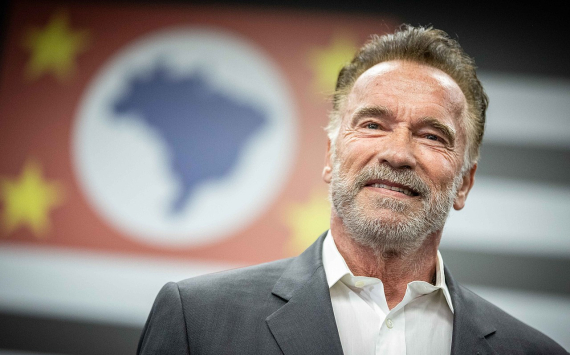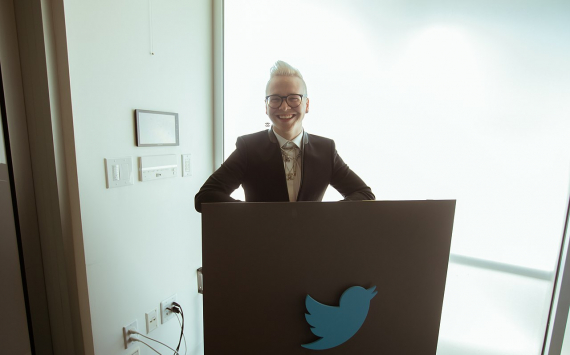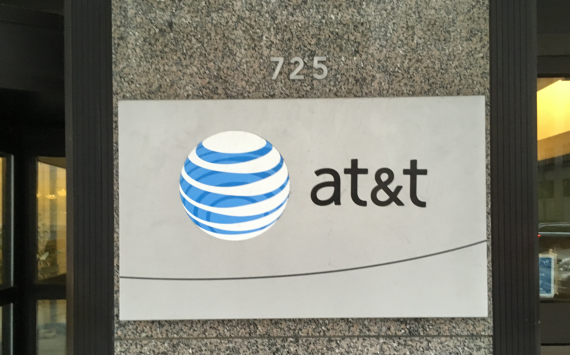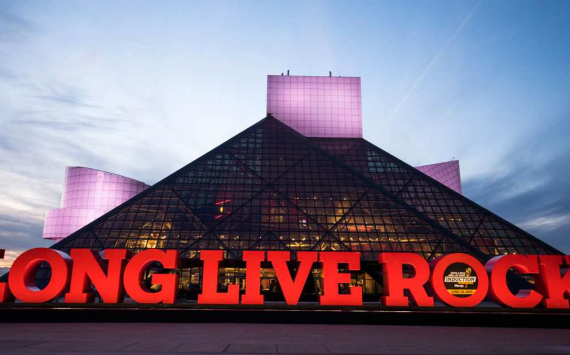Description
HBO Max is an American subscription video on demand streaming service owned by AT&T via the WarnerMedia Direct subsidiary of WarnerMedia, and was launched on May 27, 2020 in United States and in Latin America and the Caribbean on June 29, 2021. In certain territories of Europe and Asia it will be launched during the second half of that same year. While built around content from namesake premium television service HBO, it principally serves as a content hub for WarnerMedia's various film and television properties, offering a range of original programming and library content from the company as well as additional content licensed through third-party distributors.
According to AT&T, HBO Max had a nominal total of 40.6 million paying subscribers as of March 31, 2021, out of 44.1 million total subscribers to either HBO Max or HBO by itself (with the majority of remaining HBO-only subscribers being commercial customers like hotels).
History
On October 10, 2018, WarnerMedia announced that it would launch an over-the-top streaming service in late 2019, featuring content from its entertainment brands.[3] The original plan for the service called for three tiers with a late 2019 launch. Randall L. Stephenson, chairman and CEO of WarnerMedia's parent, AT&T indicated in mid-May 2019 that it would use the HBO brand and would tie into cable operators as HBO cable subscribers would have access to the streaming service. A beta was expected in the fourth quarter of 2019 and full launch in first quarter 2020 at the time.
Otter Media was transferred in May 2019 to WarnerMedia Entertainment from Warner Bros. to take over the streaming service as Brad Bentley, executive vice president, and general manager of the direct-to-consumer development exited the post after six months. Andy Forssell transferred from being the chief operating officer of Otter to replace Bentley as executive vice president and general manager while still reporting to Otter CEO Tony Goncalves, who would lead development.
On July 9, 2019, WarnerMedia announced that the service would be known as HBO Max, and would launch in spring 2020, while Reese Witherspoon's Hello Sunshine and Greg Berlanti were signed to production deals for the service. (The "Max" moniker is shared with HBO's sister linear pay television service Cinemax, which has alternately identified by its suffix name since the mid-1980s and used it prominently in its branding from 2008 to 2011.) On October 29, 2019, it was announced that HBO Max would officially launch in May 2020.
On January 8, 2020, AT&T announced that Audience, a channel exclusive to subscribers of AT&T-owned television providers such as DirecTV with some original programming, would be sunset on May 22, eventually transitioning to a barker channel for HBO Max. Warner Bros. and HBO Max announced the Warner Max film label on February 5, 2020, which would produce eight to ten mid-budget movies per year for the streaming service starting in 2020. On April 20, 2020, WarnerMedia announced HBO Max's launch date as May 27. Later that year on October 23, it was announced that WarnerMedia decided to consolidate the Warner Max label into the Warner Bros. Pictures Group after its chairman Toby Emmerich, and his development and production team led by Courtenay Valenti of Warner Bros. Pictures, Richard Brener of New Line and Walter Hamada, who oversees DC-based films, was put to oversee the company's entire film output, both theatrical and streaming releases. On April 23, 2021, WarnerMedia announced that Adult Swim would merge with HBO Max's adult animation development teams, under the leadership of Suzanna Makkos.
Management
HBO Max was formed under WarnerMedia's Entertainment division, then headed by Robert Greenblatt. Kevin Reilly, president of WarnerMedia Entertainment Networks which includes most of the company's ad-supported entertainment channels such as TBS, TNT, and TruTV, was also given the role of as chief content officer of HBO Max with responsibility for HBO Max-exclusive original programming and library content. Andy Forssell was named the service's executive vice president and general manager while still reporting to Otter Media CEO Tony Goncalves, who leads development. Casey Bloys, programming president of HBO, retained oversight of the core HBO service but was not initially involved with Max-exclusive programming.
On August 7, 2020, WarnerMedia announced a major restructuring under new president Jason Kilar, which he described as "leaning into this great moment of change" towards direct-to-consumer services. As a result, Greenblatt and Reilly both left the company, and WarnerMedia Entertainment was dissolved, with programming operations combined with Warner Bros. in a new Studios and Networks group under that studio's CEO Ann Sarnoff. Bloys was given full programming oversight of HBO and HBO Max, as well as Reilly's other previous responsibilities, reporting to Sarnoff. Forssell became the head of a new HBO Max operating business unit, reporting directly to Kilar.
Content
WarnerMedia indicated that the service would have 10,000 hours of content at-launch, including first-run and library content from the namesake HBO (including its original series, documentaries, and specials), and content from the company's other brands and networks. WarnerMedia stated that the service would have over 2,000 films available at-launch, including HBO's existing pay television rights that are sourced from studios including sister company Warner Bros. Pictures, Universal Pictures, Summit Entertainment and 20th Century Studios (the latter two have respective output deals with HBO until 2022; films from 20th Century will move to Disney+ and Hulu once its output deal expire, while future rights to Universal films are still up for negotiation despite the launch of Peacock).
As with HBO's existing streaming platforms, HBO Go and HBO Now (but as opposed to its platforms on Apple TV Channels and Amazon Video Channels), HBO Max is not expected to include feeds of HBO's linear cable channels, nor is it expected to include any content (including original programming) from Cinemax, which will concurrently wind down its original programming efforts as WarnerMedia reallocates its programming investments towards HBO Max. (Cinemax shares its film content with the linear HBO channel, and therefore the majority of films in the combined library will be on both services in different windows, but films will not necessarily be available on both HBO Max and Cinemax at the same time.) AT&T chairman and CEO Randall L. Stephenson has not ruled out adding live content from Turner Sports in the future (such as the NBA on TNT, Major League Baseball on TBS, and NCAA March Madness). The seven-year deal Turner Sports signed with the National Hockey League in April 2021 grants HBO Max live streaming and simulcast rights to games broadcast on TBS and TNT beginning with the 2021–2022 NHL season.
Content providers
First and third-party content providers for HBO Max. Asterisk (*) denotes third parties.
- Adult Swim
- Bad Robot Productions*
- Boomerang
- Cartoon Network
- CNN
- Crunchyroll
- Comedy Central
- The CW
- DC Entertainment
- GKIDS*
- HBO
- New Line Cinema
- Rooster Teeth
- Sky*
- TBS
- TNT
- TruTV
- Turner Classic Movies
- Turner Entertainment
- Warner Bros.
- Max Originals
Original content produced will be under the banner Max Originals, including series, films, and specials. Original episodic content is released weekly, eschewing the "binge" format made popular by Netflix. Kevin Reilly stated this was to ensure that originals would remain in the spotlight for extended periods, by letting said shows "breathe" as opposed to "fading quickly after a binge and burn". He also noted that the weekly schedule helped to drive the success of past HBO shows like Succession and Chernobyl which they co-produced with Sky UK, and became hits precisely due to their staying power. On February 5, 2020, Warner Bros. announced that it would form a new label known as Warner Max to produce 8 to 10 mid-budget films for the service annually. A slate of 31 original series were planned for its first year, with plans to expand to 50 for its next year, but production timelines may have been interrupted by the COVID-19 pandemic. HBO Max also has podcasts about the films and TV series on the service.
Syndication
New Warner Bros. Television Studios-produced series that have premiered on The CW since the 2019–20 season beginning with Batwoman, Nancy Drew and Katy Keene (which was cancelled in July 2020) will have their past seasons placed on HBO Max about a month after the season finale airs on TV (streaming rights to existing series remains with Netflix under an existing deal). On July 9, 2019, HBO Max acquired the U.S. streaming rights to Friends in a $425 million deal, and on September 17, 2019, acquired the U.S. streaming rights to The Big Bang Theory, as part of a deal that also extends TBS's off-network rights to the series through 2028.
Acquired rights
Outside of WarnerMedia, the service also offers titles from The Criterion Collection, and has a long-term partnership with BBC Studios (which HBO had previously partnered with to create His Dark Materials). Over 700 episodes of BBC content were available on the service at launch, including the first 11 seasons of the 2005 Doctor Who revival, as well as future seasons twelve through fourteen, and a variety of other shows including The Honourable Woman, Luther, Top Gear, and the original British version of The Office. Additionally, future shows by BBC Studios will be co-produced with HBO Max. HBO also extended their existing partnership with Sesame Workshop, while moving said content to the front of the HBO Max brand. Select episodes from all fifty seasons of Sesame Street (dating back to 1969) are available to stream on the service for the first time ever. Additionally, future seasons of Sesame Street will stream exclusively on HBO Max, alongside Esme & Roy, and several new spin-offs starting with The Not-Too-Late Show with Elmo, Mecha Builders, and The Monster at the End of This Story.
HBO Max has acquired the streaming rights to several Comedy Central series, including South Park, Awkwafina Is Nora from Queens, South Side, and The Other Two; with the latter two becoming Max Original series.
Animation
The service also features many hubs for animated programming, drawing largely from the libraries of Warner Bros. Animation (including the Looney Tunes franchise and Hanna-Barbera productions, such as Scooby-Doo, Tom and Jerry and Tex Avery's cartoons as well) and Cartoon Network, along with Adult Swim. Original animated series (including the Adventure Time epilogue specials Adventure Time: Distant Lands, Jellystone!, Looney Tunes Cartoons, continuations of Infinity Train and Summer Camp Island, and a reboot of The Boondocks produced by Sony Pictures Animation) for both network sections were also announced for HBO Max, and the service beat out competitors to acquire exclusive domestic streaming rights to Trey Parker and Matt Stone's South Park and its next three seasons, in a shared deal with ViacomCBS's Comedy Central (which Warner used to own a half ownership share of Comedy Central from 1991 to 2003) for $500 million (with new episodes being added 24 hours after their premiere on Comedy Central). Fellow Otter Media company Rooster Teeth also contributes content, with season two of Gen:Lock to be a timed exclusive for HBO Max.
Post-launch
All eight films in the Harry Potter series were available to stream on the service on launch day, despite earlier reports indicating that the films, although produced by Warner Bros., would not be available due to a prior broadcast rights agreement with NBCUniversal. It was later announced that the films would be removed on August 25 and made available on NBCUniversal's streaming service Peacock.[41] On May 29, 2020, HBO Max acquired the exclusive streaming rights to The Big Bang Theory spin-off Young Sheldon.
On June 9, 2020, Gone with the Wind was temporarily removed from HBO Max's library amid the George Floyd protests, following an op-ed in the Los Angeles Times by 12 Years a Slave screenwriter John Ridley. On June 25, 2020, the film returned in its original form with, as suggested by Ridley, a new introduction by Turner Classic Movies host Jacqueline Stewart discussing the film's treatments of the American Civil War, the Reconstruction era, and American slavery of African people.
On June 27, 2020, it was revealed that DC Universe original Harley Quinn will stream its first two seasons on HBO Max. On June 29, 2020, HBO Max secured the exclusive streaming rights of the Oprah Winfrey Network series David Makes Man. On September 18, 2020, it was announced that all DC Universe content would be migrating to HBO Max, including original shows like Titans and Young Justice, which will have their newest seasons air exclusively on the service. In addition, both Doom Patrol and Harley Quinn have been renewed for third seasons exclusively for the service.
On October 28, 2020, it was announced that the 1990s series Tiny Toon Adventures would be rebooted for Cartoon Network and HBO Max as Tiny Toons Looniversity, featuring older versions of the characters. Steven Spielberg is expected to return as executive producer. The show was given a two-season order.
In renewing his contract with WarnerMedia, Conan O'Brien announced plans to move to a weekly variety format on HBO Max from his nightly TBS show, ending a 28-year run on late-night television between NBC and TBS in June 2021.
Warner Bros. Same Day Premieres
In late 2020 due to the COVID-19 pandemic, WarnerMedia moved two Warner Bros. films originally intended as major theatrical releases to either exclusive or simultaneous releases on HBO Max. The Witches was released exclusively on HBO Max in the U.S. on October 22, and Wonder Woman 1984 debuted simultaneously in North American theaters and on HBO Max on December 25, although the latter will initially only be available on the service for a month. Week-long free trials were discontinued in December 2020.
On December 3, 2020, it was announced the studio's entire 2021 film lineup would see a simultaneous theatrical release and a one-month limited release on the streaming service, starting with The Little Things that premiered on January 29. Subsequent films released under the same-day theatrical/streaming window to date were Judas and the Black Messiah (on February 12), Tom and Jerry (on February 26), Godzilla vs. Kong (on March 31), Mortal Kombat (on April 23), Those Who Wish Me Dead (on May 14), The Conjuring: The Devil Made Me Do It (on June 4), In the Heights (on June 10), and Space Jam: A New Legacy (on July 16th), The Suicide Squad (on August 6), Reminiscence (on August 20), Malignant (on September 10), Cry Macho (on September 17), The Many Saints of Newark (on October 1), Dune (on October 22), King Richard (on November 22), and Matrix (on December 22). Standard release windows will apply to each film after their initial limited-run streaming release on the service; HBO Max would then reassume streaming rights to the aforementioned Warner Bros. films upon their respective pay television premieres on the linear HBO service in mid-to-late 2021 or 2022, depending on the scheduled start of their individual HBO exhibition agreements. This decision was met with backlash from filmmakers, production companies, the Directors Guild of America, the Creative Artists Agency, and movie theater owners as Warner Bros. had not informed anyone about their plan ahead of the announcement. Viewership of the films varied, with Mortal Kombat reaching 3.8 million, The Conjuring: The Devil Made Me Do It totaling 1.6 million, and In the Heights totaling 693,000 according to Samba TV (as WarnerMedia does not report viewership numbers for HBO Max).
In March 2021, it was announced that Warner Bros. would discontinue same-day releases in 2022, as part of an agreement the studio reached with Cineworld (who operates Regal Cinemas) and will instead use a 45-day exclusive release window for theaters.
Distribution
United States
The majority of active subscribers to the HBO pay TV service (which previously included HBO Go), and most customers that were subscribed to HBO Now at time of launch, can access HBO Max for no extra charge, with all three services generally sharing the same price point of $14.99 per month. However, this transition is contingent on the customer's current provider or biller having signed a new distribution agreement for HBO Max with WarnerMedia.
In announcing HBO Max, WarnerMedia immediately confirmed that HBO subscribers on AT&T-owned platforms (including AT&T TV, DirecTV, U-verse, and AT&T Mobility) will receive HBO Max on-launch at no additional charge. AT&T customers who are subscribed to their highest-tiered internet, TV and wireless plans will also receive HBO Max for free, while those on lower-tiered plans will get a free trial ranging from one month to one year. Existing HBO Now subscribers billed directly by HBO were also migrated to HBO Max on-launch at no additional charge. On April 27, 2020, an agreement was announced for HBO Now subscribers via Apple (both in-app subscriptions and Apple TV Channels) to be migrated to HBO Max. Content from HBO Max will be listed in the Apple TV app along with there being a dedicated HBO Max hub in the app. On Apple TV devices, HBO Max is available to the regular fourth generation Apple TV and fifth generation Apple TV 4K; earlier versions which do not support third-party app download are not supported.
WarnerMedia subsequently negotiated with other pay TV providers for similar arrangements. On February 20, 2020, WarnerMedia announced a distribution deal with YouTube TV that would allow members to add HBO and Cinemax, while also being able to include HBO Max as an add-on. On April 15, 2020, WarnerMedia announced a similar deal with Charter Spectrum (which acquired Warner's former cable division that was spun off in 2009, in May 2016) to give access to HBO Max for HBO subscribers via their TV Everywhere credentials. A similar agreement was announced with Hulu on May 1 for most existing subscribers via Hulu + Live TV, as well as being available as an add-on to all other plans on the service. On May 20, 2020, it was announced that WarnerMedia had made distribution deals with Altice USA, Cox Communications, Xbox, Samsung, PlayStation, Verizon Communications and the National Cable Television Cooperative (NCTC). An agreement with Comcast (Xfinity) was announced a few hours after the platform's launch. HBO Max is also available on Xfinity Flex and Cox Contour Stream Player.
The most prominent platforms without agreements to carry HBO Max at launch were Amazon (maker of the Fire TV) and Roku, which together are estimated to control 70% of the U.S. streaming player market. With both platforms, non-Max HBO content remained available as usual through the companies' respective channels platforms and/or through HBO Now (which was rebranded to just "HBO" on July 31, 2020) while deals for HBO Max were being worked out. On May 13, 2020, John Stankey, CEO of AT&T, revealed to Variety that Amazon was very unlikely to become a launch partner for HBO Max; the parties have remained at an impasse following the launch, reportedly due to a disagreement about whether Amazon can host the additional Max programming directly on its Amazon Prime Video Channels platform as it does for HBO currently. On November 16, 2020, it was announced that WarnerMedia and Amazon had reached an agreement to make HBO Max available on Fire TV and Fire Tablet devices beginning the following day, while also allowing subscribers of HBO via Prime Video Channels access to the HBO Max app at no extra cost (although the additional Max programming will still not be hosted on the Prime Video Channels platform). The dispute with Roku was reported to hinge on carriage commissions and advertising sales on the future ad-supported tier. On December 16, 2020, it was announced that WarnerMedia and Roku had reached an agreement to make HBO Max available on Roku devices beginning the following day, while also allowing subscribers of HBO via Roku Channels access to the HBO Max app at no extra cost (although the additional Max programming will still not be hosted on the Roku Channels platform); conversely, Roku remote controls from the past five years which included an HBO Now app shortcut button now route viewers directly to the HBO Max app instead. Dish Network was also erroneously mentioned as a holdout in some media reports; HBO has not been available at all from Dish since late 2018 due to a separate dispute.
At launch, HBO Max did not support 4K, HDR, or Dolby Atmos, but support for these technologies were planned as "part of the HBO Max product roadmap". Support for 4K, HDR, and Atmos was added starting with the release of Wonder Woman 1984, with WarnerMedia promising to add more content in these formats throughout 2021. There was also no support for audio description (AD) for those with visual impairments at launch. In October 2020, the American Council of the Blind announced it had reached a settlement with WarnerMedia whereby at least 1,500 hours of HBO Max content will be available with AD by the end of March 2021, increasing to at least 6,000 hours by March 2023, along with other accessibility enhancements to the website and apps by September 2021. HBO Max later began rolling out AD on select titles on March 26, 2021.
There were plans for HBO Max to introduce an ad-supported tier by 2021, with AT&T later announcing during their Investor Day event on March 12, 2021, that the tier would launch in June of the same year. HBO original programing will continue to be ad-free for subscribers of the tier, but the tier will not allow access to Same-Day Premieres. WarnerMedia later announced during their 2021 upfront presentation on May 19 that the ad-supported tier would launch during the first week of June at a price point of $9.99 a month. The tier would end up launching on June 3, while also adding a yearly option for both tiers (priced at $99.99 for the ad-supported tier and at $149.99 for the ad-free tier).
International
Localized versions of HBO Max launched on June 29, 2021 in Latin America and the Caribbean, and will launch later in 2021 in parts of Europe, such as Spain and the Nordics, by converting existing streaming services operated by HBO in those markets to the HBO Max platform and for the first time in Portugal, Lithuania, Latvia, and Estonia. In the interim, some HBO Max original programs have been made available on WarnerMedia's existing international platforms, also including HBO Asia.
In other countries, HBO programming is licensed to third-party networks and streaming services under long-term deals; many of these services, like HBO and its owner AT&T, are owned by major pay TV service providers in their respective markets. WarnerMedia said in late 2019 that it planned to continue HBO's existing international licensing partnerships for the time being. However, as part of the WarnerMedia further restructuring announced in August 2020, WarnerMedia president Jason Kilar said HBO Max would be expanding its scope globally. Operations chief Andy Forssell indicated later that year that the company ultimately plans to have HBO Max active in 190 countries, but that a timeline for most of the remaining countries had not been decided.
Many HBO Max programs are also available in Canada through Bell Media (operator of HBO Canada and online streaming service Crave), in Australia through Foxtel (operator of Fox Showcase and the Binge streaming service), and in Japan through the U-Next streaming platform. Both Bell and Foxtel reached expanded agreements with WarnerMedia shortly before HBO Max's launch, extending their rights to HBO main-channel programming and adding most HBO Max original series and films produced directly by WarnerMedia, and eventual streaming rights to certain WarnerMedia library series including Friends. U-Next later reached a deal to carry HBO and HBO Max original programs in Japan beginning in April 2021, replacing a expiring deal between HBO and Amazon Prime Video Japan. Programs produced by third-party studios are negotiated separately; for example, rights to Love Life (produced by Lionsgate) are also held by Crave in Canada, but by Stan in Australia. Many of HBO Max's family-oriented and animated series were acquired in Canada by Corus Entertainment for their Teletoon and Treehouse networks in 2020, in-part due to pre-existing agreements between Corus and WarnerMedia.
The day-and-date streaming releases of Warner Bros. theatrical films on HBO Max do not currently extend to either international HBO services, or to partner services like Crave and Binge.
HBO's other existing international partners, including Sky Group (Europe), Sky New Zealand, OCS, OSN, Showmax and Disney+ Hotstar (India) have retained their long-term rights to programming from the main HBO service, in some cases until 2025; however these rights do not automatically extend to Max Originals. Apart from co-productions that are part of Sky Group's deal, carriage of HBO Max original programs by these partners is on a case-by-case basis, with some shows airing instead on other local channels owned by WarnerMedia.
In March 2021, WarnerMedia confirmed that HBO Max would not launch in the UK, Germany and Italy before 2025 due to the aforementioned deal for HBO programming with Sky Group.
Latin America
According to WarnerMedia, HBO Max was launched on June 29, 2021 in the 39 territories of Latin America and the Caribbean, where HBO already operates directly its streaming service HBO Go, and premium television channels.
Reception
HBO Max received mixed reception from media observers on launch. The range of available content was generally well received, but many commented on the likelihood of confusion with HBO's other since-deprecated streaming platforms, HBO Go and HBO Now, and the service's higher subscription price compared to other newly launched streaming platforms like Disney+. Television critics have also expressed frustration that the library of original series for sister network Cinemax are not available on HBO Max.
AT&T announced in July 2020 that HBO Max had nominally achieved 26.6 million subscribers after its first month of operation, including 23.6 million wholesale customers, primarily legacy HBO pay TV subscribers that were covered by new agreements that added access to HBO Max at no extra charge. However, only 4.1 million customers had activated their HBO Max accounts by the same date. The latter figure was seen by many observers as a disappointment, particularly in light of Disney+ having reached 10 million subscribers within a day of launch; The New York Times's media critic Ben Smith wrote that WarnerMedia had "badly botched" the launch.
However, AT&T executives contended that it had been a "flawless launch" citing increased customer engagement compared to HBO Now and overall growth in total subscriptions to either HBO or HBO Max (36.3 million, vs. 34.6 million HBO or HBO Now subscribers at the end of 2019), while acknowledging that there was more to do to persuade existing HBO subscribers to start using the HBO Max apps. Executives had previously noted that HBO Max was starting from a different place than other streaming services as it was building on the existing HBO subscriber base, and had to work within the constraints of many of HBO's pre-existing deals (such as those with Amazon and Roku).
In October 2020, AT&T revealed that the number of activated HBO Max subscribers had reached 8.6 million by the end of September, while the number of nominal (eligible) subscribers reached 28.7 million. The total number of HBO / HBO Max subscriptions in the U.S. also increased to 28 million. With an agreement being reached the following month with Amazon (which is reported to have had 5 million HBO subscribers through Prime Video Channels), the number of HBO Max-eligible subscribers is understood to have increased to over 33 million.

